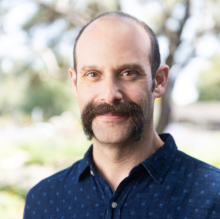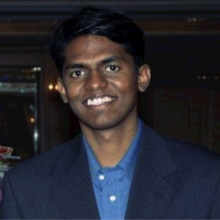Summary
Disclaimer: This summary has been generated by AI. It is experimental, and feedback is welcomed. Please reach out to info@qconsf.com with any comments or concerns.
The presentation, titled Engineering at AI Speed: Lessons from the First Agentically Accelerated Software Project, was given by Adam Wolff, an engineer at Anthropic. The talk focused on the development and architectural decisions behind Claude Code, a developer tool designed to maximize AI development velocity.
Main Takeaways:
- Simple by Design: Emphasizes the use of simple patterns in high-level languages that support async generators and typed interfaces to outperform complex AI systems, focusing on speed as the primary competitive advantage.
- Process-Product Convergence: Describes how rapid iteration cycles blur lines between development workflows and product features, with examples from Claude Code's evolution.
- Engineering for Speed: Explores technical patterns for rapid release, updating, and feedback gathering that enable acceleration at scale.
Key Concepts Discussed:
- The importance of choosing architectural designs that prioritize speed over complexity in software development.
- The examples explained how some modules of Claude Code evolved through experimentation and adjustments.
- Adam shared experiences demonstrating how adoption of AI tools like Claude Code facilitates rapid software delivery, allowing for iterative feedback and adjustments.
- Discussed the significance of internal experimentation and failure as critical components in validating architectural choices and accelerating development processes.
- The presentation also showcased specific stories from the development journey of Claude Code, highlighting the decision-making processes and lessons learned.
Lessons from Case Studies:
- Modular complexity is preferable to tangled complexity when making architectural decisions.
- Continuous deployment and the ability to quickly reverse changes through mechanisms like feature flags are crucial to maintaining velocity.
- Utilizing user feedback and development insights to guide product evolution and feature integration is essential.
Overall, the presentation stressed the importance of speed and adaptability in AI-driven software projects, outlining practical strategies and experiences that underpinned the successful use of Claude Code in accelerating development.
This is the end of the AI-generated content.
Abstract
Claude Code is the first developer tool built specifically to maximize AI development velocity. People routinely try to dissect it looking for its secret sauce or advanced architecture, but the key parts of the implementation are just some async generators and nicely typed interfaces composed with basic orchestration patterns. The real technical innovation wasn't building sophisticated systems—it was deliberately choosing simple solutions that maximize development velocity. In this talk, we'll explore the architectural decisions that prioritize speed over complexity, and how this velocity-first approach naturally leads to process-product convergence where internal workflows evolve into user-facing capabilities.
Main Takeaways:
- Simple by Design: Why deliberately simple patterns in high level languages that support async generators and typed interfaces outperform complex AI systems when speed is the primary competitive advantage
- Process-Product Convergence: How rapid iteration cycles blur the lines between development workflows and product features, with concrete examples from Claude Code's evolution
- Engineering for Speed: Technical patterns for rapid release, update, and feedback gathering that enable acceleration at scale
Interview:
What is the focus of your work these days?
The majority time in my day is spent working on Claude Code:
- Low-level implementation details like Claude’s shell and its integration with native tooling
- Build and release process
- Installer and auto-updater
What is the motivation behind your talk?
AI agents are reshaping the landscape of software development practices faster than we can settle on shared best practices. As an engineering community, we will have to work together to figure out how to get the most from these incredible tools. So much of what makes Claude Code great is grounded in feedback from our users.
Who is your talk for?
Software engineer, AI engineer, Product Manager, Technical Program Manager, Designer
Speaker

Adam Wolff
Engineer and Individual Contributor to Claude Code @Anthropic, Previously @Robinhood, @Facebook
Adam Wolff currently works at Anthropic as an engineer and individual contributor to Claude Code, the first terminal-based agentic coding tool. Previously, he was the Head of Engineering at Robinhood, and before that, he was in charge of Facebook's product infrastructure group, which was responsible for popular open source technologies including React and GraphQL. Adam joined Facebook when the startup that he co-founded, Sharegrove Inc., was acquired in 2010. Before founding Sharegrove, Adam was the Chief Software Architect for Laszlo Systems, where he worked on rich client apps and open source software before it was cool.








